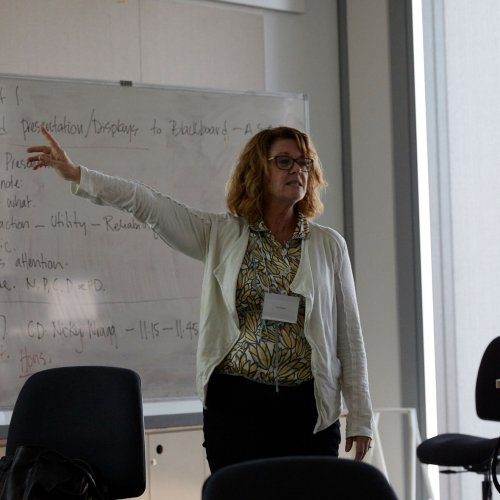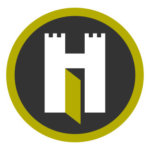Friday 25 October will be a full day devoted to craft and publishing.
You can choose from a suite of nine two-hour workshops by top-rate tutors offering insights and practical tips on various aspects of the writing craft, research, and sub-genres.
Workshops will be conducted in three two-hour blocks with a choice of one workshop per time block.
- First session: 9.00-11.00
- Second session: 11.30-1.30
- Third session: 2.30-4.30.
COST: Tickets are $40.00 each. You need to book a ticket for each workshop you’d like to attend. If you book three workshops held over the three successive time sessions, you can get a refund of $10 at the registration desk on the Friday morning.
VENUE: EZ Building, The Female Orphan School,
Western Sydney University, Parramatta (South) Campus,
Cnr James Ruse Drive & Victoria Rd, Rydalmere, NSW
Download the full schedule of workshops here (PDF):
session one 9-11am
Room EZ.G.22
The word romantic was first used in the 17th century to describe imagination and inventiveness in art. The word comes from the Old French romanz, which meant a ‘verse narrative’ and usually referred to the chivalric escapades of a knight.
So, strictly speaking, ‘historical romance’ means imaginative fiction set in the past with elements of love and adventure. For many writers, though, the fear of writing a ‘bodice-ripper’ holds them back from introducing romantic elements into their stories. Yet love is one of the most human of longings. And romance continues to be the most popular genre in the world – in 2016, Romance/Erotica sold $1.44 billion worth of books, with Crime/Mystery trailing behind with only $728.2 million.
So why not add a little spice to your swashbuckle? Kate Forsyth will show you how!
Limit: 20 people
Cost: $40 per person
Room EZ.G.23
Writing historical fiction has two challenges that authors of contemporary fiction don’t face: finding the information you need to write the story both convincingly and authentically – and resisting being dragged down that rabbit-hole of fascinating research! A secondary issue is: Once you have that information, how should you organise it for easy use?
This workshop with Pamela Hart looks at how to find the right sources for your story, how to sift the useful from the fascinating-but-irrelevant, how to organise your research in a way which is useful for you, and what to do when you can’t find the information you need to be sure of your historical accuracy. And how accurate should you be? Should you let the facts get in the way of a good story…?
The workshop will suit people who know what period they want to write about but have not yet done substantial research on it; or people who struggle to manage their research process and output.
Limit: 20 people
Cost: $40 per person
Room EZ.G.36
Planning to publish your book online and don’t know where to start? Successful independent authors follow traditional professional processes. Learn how to navigate these essential steps including editing, design, publishing, marketing and distribution. By the end of this workshop with Evan Shapiro you will understand how to manage the traditional process on various budgets, with the aim of publishing quality eBooks and paperbacks independently.
Limit: 20 people
Cost: $40 per person
session two: 11.30am - 1.30pm
Room EZ.G.22
This workshop with Meg Keneally will look at how crime fiction works. What makes a good crime novel? What techniques are used to create tension and misdirection? How does the writer ensure a satisfying resolution? We’ll look at character, plot, setting and voice. Bring along writing materials, because this workshop is about writing, not just listening.
Limit: 20 people
Cost: $40 per person
Room EZ.G.23
Writing family history demands curiosity, research, interviewing, writing, and critical thinking. How do you develop the research skills of a researcher, the investigative skills of a journalist, and the imaginative empathy of a creative writer? How do you deal with dead ends, false leads, and too much/too little information? This practical workshop with Paula Morris will address how to approach researching and telling true stories, with writing and research exercises, and discussion of excellent published examples.
Limit: 20 people
Cost: $40 per person
Room EZ.G.36
Scrivener is a low-cost software program created especially for writers. In this practical session, Kelly Gardiner will introduce you to Scrivener’s strengths: how to use it to manage chapters and scenes, set and track word count targets, sketch out characters and settings, incorporate research materials, and more.
Bring your laptops, with Scrivener installed (you can download a free trial version).
Limit: 20 people
Cost: $40 per person
Session three: 2.30-4.30pm
Room EZ.G.22
Longing to add a touch of magic to your historical fiction? New York Times bestseller Alison Goodman will guide you through the joys and jeopardies of mashing two popular genres together: historical fiction and fantasy. What are the genre conventions? Do you have to follow them? Why is it so important to keep track of your own magic system? This hands-on workshop will build on the basics of scene-driven storytelling to help you create your fantastic world.
Limit: 20 people
Cost: $40 per person
Room EZ.G.23
Historical fiction isn’t just for adults. Children and young adults will happily plunge into it, provided it’s handled in a way that will reach them. So how do you do that?
Sophie Masson, author of many popular historical novels for children and young adults, including the award-winning The Hunt for Ned Kelly and the very recent War and Resistance, will guide you through some of the questions that can arise when writing for children and young adults. How do you tackle difficult subjects? How much detail should you include? And how do you craft a story that will have both historical authenticity and contemporary reader engagement? Suitable for writers at all stages of their careers.
Limit: 20 people
Cost: $40 per person
Room EZ.G.36
Trove is a gateway to an extraordinary range of resources, across many formats including: books, manuscripts, maps, newspapers, objects and pictures. Join Rachel Franks for an introduction to this essential tool for the historical novelist. Focusing on newspapers, this session will look at search strategies and offer a few “tips and tricks” for using Trove. Often described as a “national treasure”, Trove brings together resources from collecting institutions across Australia to facilitate easy access into the world of the past.
Limit: 20 people
Cost: $40 per person






